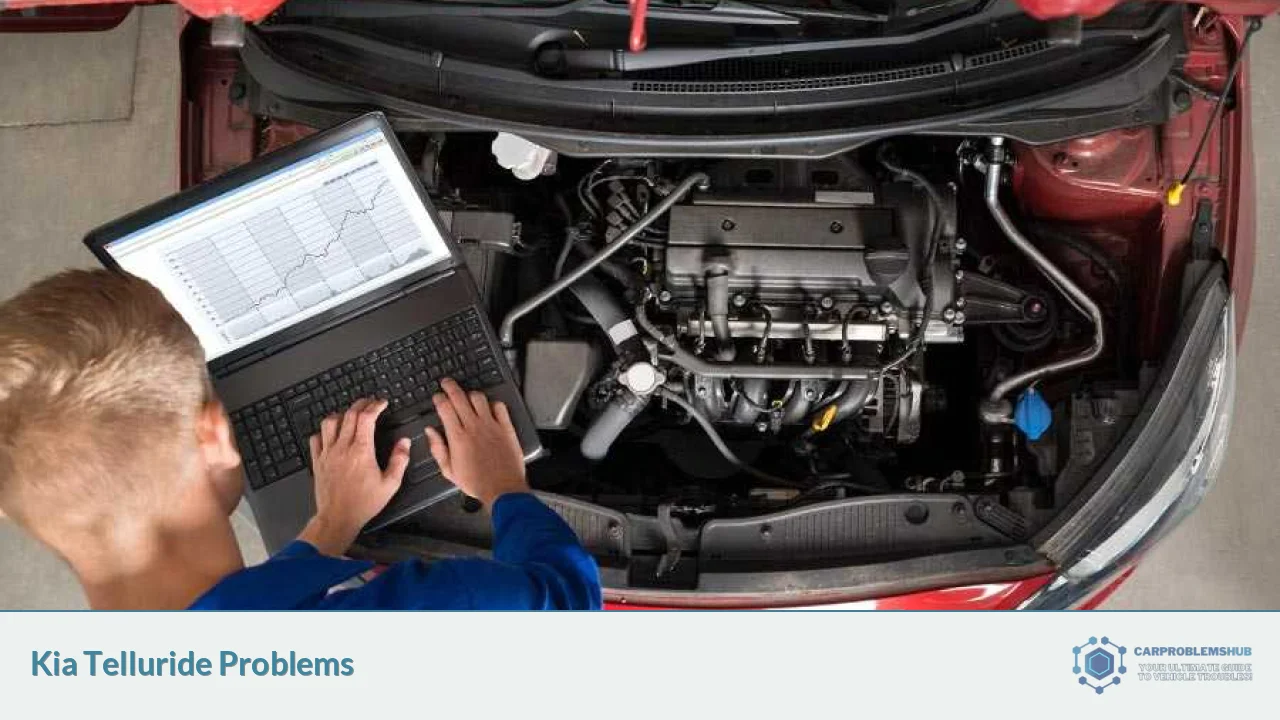Understanding Vehicle Repair: A Comprehensive Guide
Vehicles are intricate machines that reflect the intersection of engineering and technology, designed for reliability, efficiency, and safety. However, like any complex system, they can face various challenges over time. Whether you’re a seasoned car owner or new to the world of automotive maintenance, understanding vehicle repairs is crucial. Engaging in regular maintenance and being aware of common issues can save you time, money, and stress down the line. From engine troubles to electrical hiccups, knowing what to look out for and how to address these problems can significantly impact your vehicle’s longevity and performance. In this article, we will explore common problems, delve into specific technical issues related to engines and transmissions, and provide essential advice on maintenance and care.
Common Problems
-
Engine Overheating: Often caused by coolant leaks or a faulty thermostat, engine overheating can lead to severe damage if unresolved. Typical repair costs range from $100 to $1,000, usually occurring around 60,000 miles.
-
Transmission Slipping: This problem indicates that the vehicle has trouble maintaining gear, often linked to low transmission fluid or worn components. Repair costs can range from $1,200 to $3,500, typically found around 70,000 miles.
-
Electrical System Malfunctions: Issues may arise from faulty batteries or corroded connections, leading to starting problems or accessory failures. Repairs cost about $100 to $900, often noted after 50,000 miles.

Brake Wear and Failure: Worn pads and discs can lead to decreased stopping power and poor response. Repair costs can vary $300 to $800, usually noticeable around 30,000 to 70,000 miles.
-
Suspension Problems: A failing suspension system can produce a bumpy ride or uneven tire wear. Repairing this typically costs between $500 and $1,500, often emerging around 80,000 miles.
-
Fuel System Issues: Clogged fuel injectors or filters can cause performance drops or hard starting. Average repair costs range from $200 to $600, generally occurring at around 60,000 miles.
-
Exhaust Leaks: Compromised seals or holes in the exhaust system can lead to poor fuel efficiency and increased noise. Repairs can cost anywhere from $100 to $2,000, often detected after 50,000 miles.
-
Oil Leaks: Common in older vehicles, oil leaks can emanate from gaskets or seals, risking engine integrity. Repair costs range from $100 to $1,500, typically observed beyond 70,000 miles.
-
Tire Issues: Uneven wear, flat tires, or blowouts can result from several factors, including misalignment. Depending on the issue, costs can average $20 to $1,000. Tire issues can arise with any car age but often present after 40,000 miles.
-
Air Conditioning Failure: Failing compressors or low refrigerant can lead to inefficient cooling. Repairs generally cost $300 to $2,000 and often surface above 60,000 miles.
Engine Issues
The engine is the heart of your vehicle, and a myriad of issues can hinder its performance. Typical engine-related problems include:
-
Loss of Power: A declining engine can struggle to accelerate. Symptoms may include loud knocking noises, decreased power, or warning lights. Solutions often involve tuning up spark plugs or even rebuilding the engine, with costs between $300 and $4,000.
-
Oil Consumption: Excessive oil consumption can result from worn piston rings or seals. You’ll notice blue smoke from the exhaust. Address this by monitoring oil levels frequently and investigating leaks, with costs ranging from $150 to $2,000 for repairs.
-
Engine Noise: Unusual noises can indicate various issues, from timing belts to lifter problems. Thorough diagnostics are crucial, with repair options starting from $150, potentially leading up to $1,500 for extensive repairs.
-
Check Engine Light: This often represents a multitude of issues. Diagnostic testing can reveal problems that need resolution, ranging in costs around $100 to $1,000 depending on the diagnosis.
Being vigilant about these symptoms can mean the difference between regular maintenance and costly repairs.
Transmission Issues
Transmission problems typically indicate severe mechanical problems requiring prompt attention. Common issues include:
-
Delayed or Erratic Shifting: If you feel a noticeable delay or confusion in gears, it may suggest low transmission fluid. Regular fluid checks can prevent this, with costs for a fluid change ranging between $80 and $300.
-
Fluid Leaks: Transmission fluid leaks are often evident by bright red spots under the vehicle. Maintaining fluid levels is vital for operation; repairs can range from $150 to $1,500 based on severity.
-
Noisy Gear Changes: Grinding or whining sounds during shifts often indicate internal damage or worn bearings. Seeking immediate assistance to resolve this can result in costs from $500 to $3,000, dependent on the required repairs.
Acting promptly upon noticing transmission issues is essential, as continued operation under distress can lead to complete failure.
Electrical System Problems
Today’s vehicles rely heavily on complex electrical systems. Common electrical problems are:
-
Dead Battery: Regular wear or environmental factors can lead to battery failure. Replace a dead battery for about $100 to $200.
-
Faulty Alternator: If your vehicle stalls while driving, this could indicate alternator failure. Repair or replacement can range from $300 to $800.
-
Blown Fuses: Regularly check the dashboard for warning lights or issues with vehicle accessories. Replacing fuses is inexpensive, typically costing under $20, but multiple blown fuses may indicate deeper electrical issues.
-
Sensor Failures: O2 sensors or mass airflow meters can fail, triggering performance issues. Replacing these sensors usually costs $100 to $300.
Electrical system problems can become complicated; thus, preemptive checks and awareness are crucial for long-lasting vehicle health.
Additional Technical Problems
In addition to engine and transmission issues, other technical problems may arise during ownership, including:
-
Timing Belt Wear: If a timing belt fails, it can cause catastrophic engine damage. Regular replacement is necessary every 60,000 to 100,000 miles, costing between $500 and $1,000.
-
Power Steering Failure: A failing system may lead to difficult steering. Costs for repairs can run from $200 to $1,200, depending on severity.
-
Fuel Pump Failure: This critical component can fail without warning, causing the car to stall. Replacement costs range between $100 to $800, so regular checks are wise.
-
Radiator Issues: Problems like leaks can lead to overheating. Repair costs vary widely, from minor fixes at $100 to extensive replacement fees of $800, so maintaining coolant levels is key.
Understanding these problems ensures you can address them before they escalate into serious issues.
Important Points to Know
-
Key Maintenance Requirements: Regular oil changes, fluid checks, and brake monitoring are essential. Prioritize a routine maintenance schedule every 5,000 to 7,500 miles.
-
Critical Warning Signs: Pay attention to unusual sounds, vibrations, warning lights, or smells, and address them immediately.
-
Essential Preventive Measures: Ensure your vehicle is parked on level ground when checking fluids and routinely inspect tires for wear.
-
Recall Information: Stay informed about any recalls for your vehicle model, as manufacturers may offer free repairs for safety concerns.
-
Parts Availability and Costs: Regular maintenance parts are generally readily available through dealerships or auto parts stores, though prices can fluctuate. Always budget for potential repairs.
-
Impact on Resale Value: A well-maintained vehicle retains more value. Keep detailed records of repairs and maintenance to enhance resale prospects.
Final Words
In summary, understanding vehicle repairs is paramount to safe and reliable car ownership. With engines and transmissions being the heart and backbone of a car, addressing issues promptly can save you from major headaches and costly repairs. If you’re in the market for a new vehicle, consider your budget for regular maintenance and repairs, as well as the vehicle’s history of reliability. Stay observant, proactive, and informed as an owner to ensure your vehicle serves you well for years to come. Regular checks, understanding common issues, and good practices can ensure you maximize the longevity and functionality of your automotive investments.
Was this page helpful?


Similar Problems in Other Models
Porsche Macan Problems
2007 Ford Fusion Problems
2012 Toyota Sienna Problems
2013 Lexus Gs 350 Problems
2013 Audi A4 Problems
2023 Nissan Rogue Problems
2003 Buick Century Problems
2021 Tahoe Diesel Problems
2023 Kia Sorento Problems
2007 Mercedes E350 Problems
Car News and Reviews
Would you like to take a look at the car news and reviews we have carefully selected and published for you?
2024 Lucid Air Prices Go Down
GM's Big Road Network for Hands-Free Driving
DTC C0561-71 Vacuum Sensor Code on GM, GMC and Chevy
C1201 Code Toyota and Lexus (Causes and Solutions)
Chrysler Auto Start Stop Warning Light (Causes and Solutions)
2024 Ford Mustang GT: Digital Age Meets Classic Power
The 2024 Chevrolet Silverado 2500HD ZR2: An Off-Road Marvel
2024 Chevy Colorado ZR2 Bison: The Ultimate Off-Road Experience
The 2024 Lucid Air Sapphire Track Drive Experience
2024 Subaru Forester Review, Specs, Price, Release Date